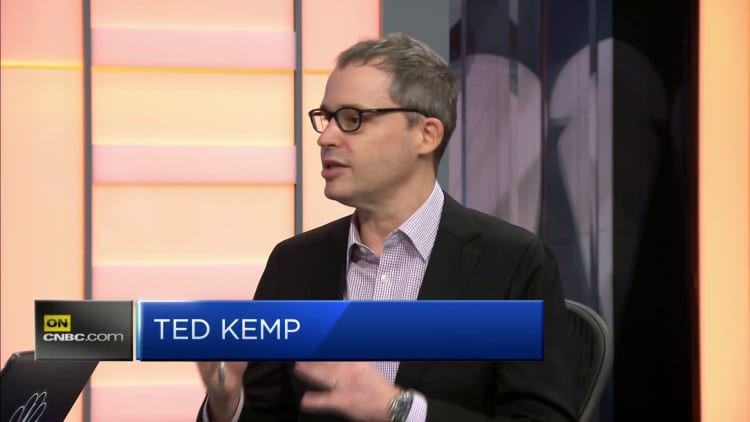A textile factory on December 30, 2022 in Jiangxi Province. Chinese manufacturing activity contracted in December at its sharpest pace in nearly 3 years.
Vcg | China Optical Group | Getty Images
China’s factory activity contracted for a third straight month in December and at the fastest pace in nearly three years as Covid infections swept production lines across the country after Beijing’s sudden rollback of anti-virus measures.
The National Bureau of Statistics (NBS) said on Saturday that its official Purchasing Managers’ Index (PMI) fell to 47.0 from 48.0 in November. Economists polled by Reuters had expected the PMI to come in at 48.0. The 50-point mark separates contraction from growth on a monthly basis.
The decline was the largest since the early days of the pandemic in February 2020.
The data provided the first official snapshot of the manufacturing sector after China removed the world’s strictest Covid restrictions in early December. UK-based health data company Airfinity estimated that cumulative infections likely reached 18.6 million in December.
Analysts said the rise in infections could cause temporary labor shortages and increase supply chain disruptions. Reuters reported on Wednesday that Tesla plan to run It lowered the production schedule at its Shanghai plant in Januaryto extend the reduced production that started this month to next year.
Weakening external demand on the back of growing fears of a global recession amid rising interest rates, inflation and the war in Ukraine could further slow China’s exports, hurting its huge manufacturing sector and hampering economic recovery.
While the (factory PMI) was lower than expected, it is difficult for analysts to make a reasonable forecast given the uncertainty surrounding the virus over the past month.”
Chu Hao
Chief Economist, Guotai Junan International
“Most of the plants I know are well below what they could be at this time of year for next year’s orders. A lot of the plants I’ve talked to are at 50%, some are less than 20%,” said Cameron Johnson, partner at Tidalwave. Solutions, a supply chain consulting firm.
“So even though China is opening up, manufacturing is still slowing because the rest of the global economy is slowing. Factories will have workers, but they won’t have orders.”
NBS said 56.3% of manufacturers surveyed reported being significantly affected by the pandemic in December, up 15.5 percentage points from the previous month, although most also said they expected the situation to gradually improve.
Recovery hopes?
“While it (factory PMI) was lower than expected, it is difficult for analysts to make a reasonable forecast given the uncertainty related to the virus over the past month,” said Zhou Hao, chief economist at brokerage Guotai Junan International.
“Overall, we believe that the worst for the Chinese economy is behind us, and there is a strong economic recovery ahead.”
The country’s Banking and Insurance Supervisory Authority pledged this week to step up financial support for small and private businesses in the restaurant and tourism sectors that have been hit hard by the Covid-19 pandemic, stressing that recovery of consumption will be a priority.

NBS data showed that the non-manufacturing PMI, which looks at service sector activity, fell to 41.6 from 46.7 in November, the lowest reading since February 2020.
The official composite PMI, which combines manufacturing and services, fell to 42.6 from 47.1.
“The weeks leading up to Chinese New Year will continue to be challenging for the services sector, as people will not want to go out and spend more than necessary for fear of infection,” said Mark Williams, chief Asia economist at Capital Economics.
“But the outlook should be brighter by the time people come back from the Chinese New Year holidays — infections will drop again and a large proportion of people will have had recent covid and feel they have some degree of immunity.”

“Beer aficionado. Gamer. Alcohol fanatic. Evil food trailblazer. Avid bacon maven.”
